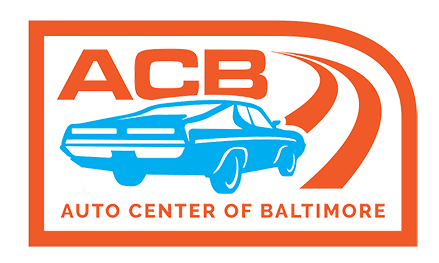How Buying a Used Car Can Assist You Reach Your Financial Goals
Posted Tuesday, Jan 02, 2024

In today's money-conscious world, being smart about big purchases really matters. The choices you make can seriously affect your ability to reach long-term financial goals. One of these choices is that of your car - should you buy a new car or a used car?
While the allure of a shiny new vehicle straight from the dealership can be tempting, opting for a used car is a smart and strategic move that aligns with the principles of financial responsibility and long-term savings.
Let’s look at how buying a used car can help you reach your financial goals.
Financial Benefits of Buying a Used Car
The Initial Cost Advantage
One of the biggest perks of going for a used car instead of a brand-new one is the money you save. Brand-new cars tend to lose a bunch of their value really quick in the first few years, right after they roll off the dealership lot. This drop in value, aka depreciation, lets savvy shoppers snag a ride with minimal wear and tear for way less than the original cost.
If you're on a tight budget, picking a used car could be the game-changer between staying in your financial comfort zone and feeling the pinch. The cash you save upfront can be put toward other important money matters, like setting up an emergency fund, knocking out high-interest debt, or getting a jumpstart on future investments.
Lower Insurance Costs
Besides the initial savings, choosing a used car can also score you lower insurance bills. Insurance rates usually depend on how much your vehicle is worth. Because used cars have a lower market value compared to shiny new ones, insurance costs tend to be more wallet-friendly. This ongoing cut in insurance expenses can add up to some serious savings throughout the time you own the car.
With those reduced insurance costs, you've got extra cash to play with. You can steer those savings into other financial goals, like padding your retirement fund, covering your kids' education expenses, or just giving your overall quality of life a boost.
Reduced Depreciation Concerns
Depreciation is a big deal when you're sizing up the financial impact of buying a car. New cars can tank in value by up to 20% in just the first year, and the downward slide continues for a while. On the flip side, used cars have already weathered the worst of the depreciation storm. So, when you go for a used car, you're not looking at the same level of financial hit you'd take with a brand-new ride.
Picking a used car means dodging the worst of the depreciation bullet, letting your wheels hold onto more of their value over time. This perk comes in handy if you ever decide to sell or trade-in your car down the road because you stand a better chance of getting back a good chunk of what you initially shelled out.
Diverse Options and Vehicle History
The used car market is like a treasure trove, offering a smorgasbord of options. Buyers can pick and choose from different makes, models, and years to snag a vehicle that perfectly matches their needs and preferences. Since used cars go for lower prices than new ones, you get a much wider range of options that fit within your budget. This variety is a game-changer, letting buyers make savvy decisions based on things like fuel efficiency, safety features, and maintenance costs.
But there’s more to it than that. Reputable dealerships and private sellers often sweeten the deal by handing over detailed vehicle history reports for used cars. These reports give you detailed information on the car's past, laying out everything from accidents to title hiccups and maintenance records. With this info in their back pocket, buyers can step into the deal with more information, making sure they're not getting stuck with a vehicle hiding some sneaky issues.
Lower Registration Fees
How much it costs to register a vehicle depends on how old it is and what it's worth. Because used cars don't come with the hefty price tags of new ones, the registration fees are usually a lot easier on the wallet. This isn't just a short-term win – it's a money-saver in the long run.
When your registration fees are on the lower side, it means more cash stays put in your pocket. You get to decide where that money goes, whether it's into investments, savings, or chipping away at some lingering debt. The financial perks of having reduced registration costs are a handy bonus when you're in the market for a used car.
Environmental Considerations
In a time when being environmentally aware is becoming increasingly important, going for a used car is seen as a responsible choice. Manufacturing new vehicles uses up a ton of resources – from energy and raw materials to all the human labor involved. When you opt for a used car, you're doing your part to cut down on the environmental toll tied to making brand-new rides.
But that’s not all! Giving existing cars a longer life through the used market helps trim down the overall carbon footprint of the car industry. This eco-friendly move lines up perfectly with the values of folks who want to make choices that keep the environment in mind. Choosing a used car is the right choice for those who care about making a positive impact on the planet.
Long-Term Financial Planning
The financial benefits of buying a used car extend beyond the immediate savings. When viewed through the lens of long-term financial planning, the decision to purchase a used car aligns with the principles of frugality, budgeting, and responsible money management.
Final Thoughts
There are plenty of things to keep in mind when buying a used car, but if finances are your priority, a used car is better than a new one!
Our recommendation is to opt for a reputable dealer backed by stellar online reviews. This way, you ensure satisfaction with your purchase over the long haul. The Auto Center of Baltimore is a solid choice to guide you through the decision-making process, offering a range of vehicles for you to choose from. Save money and get your dream car with us!

